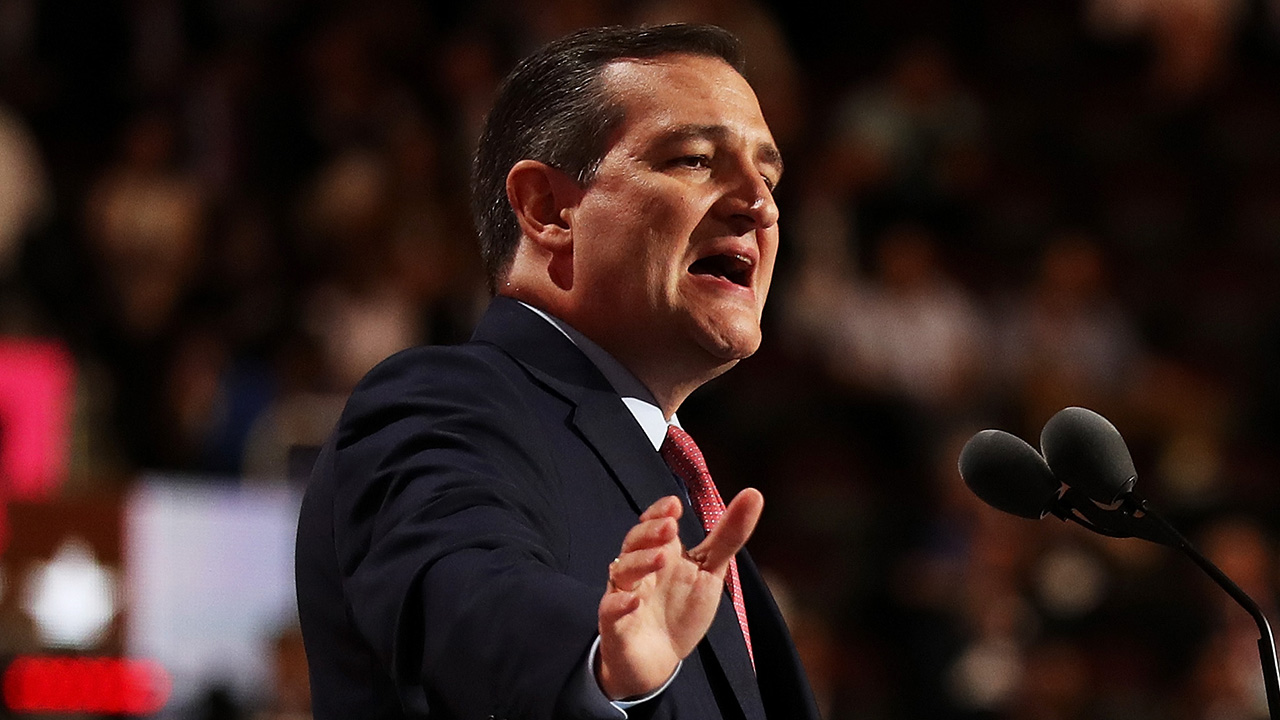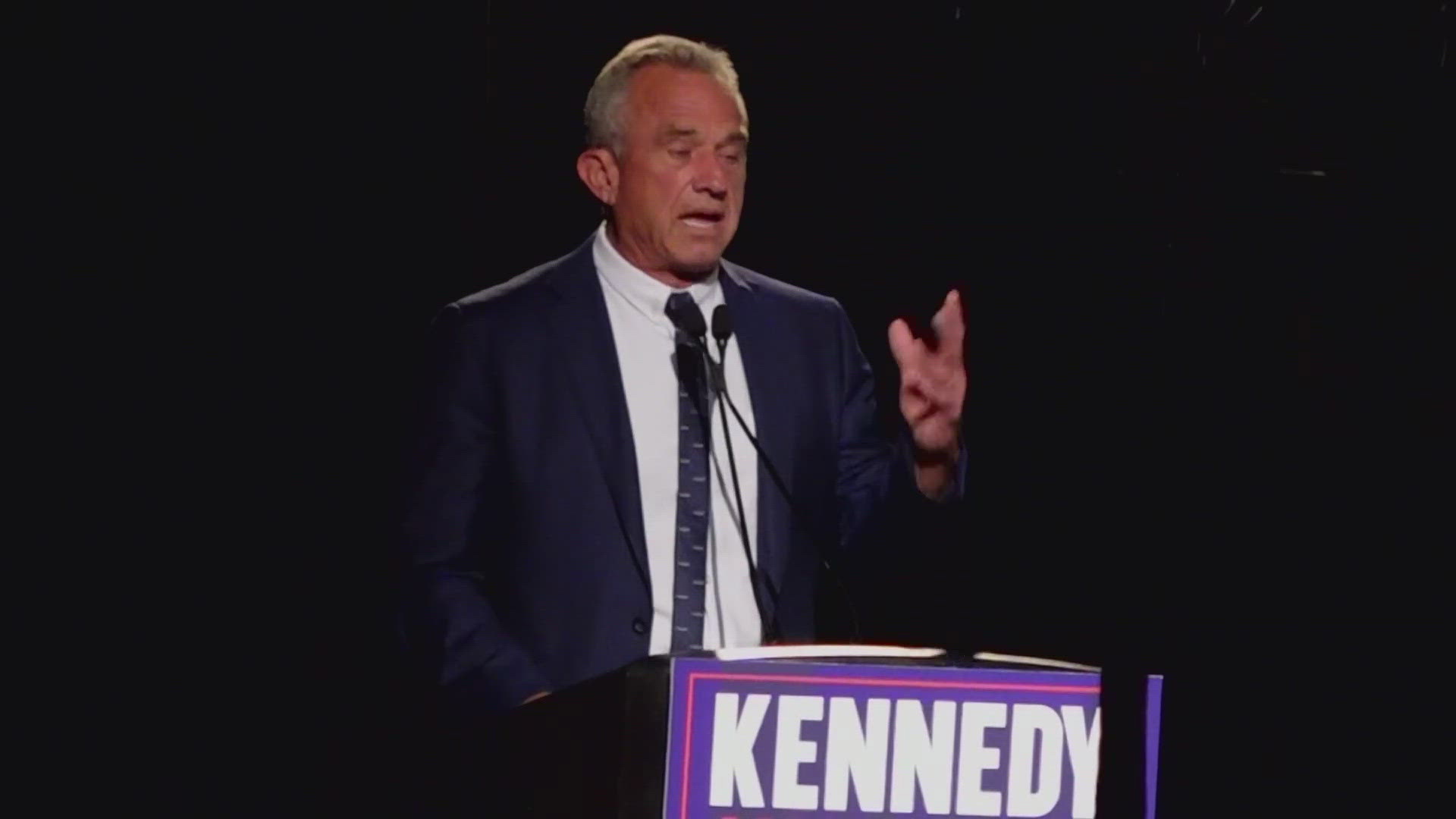Ted Cruz's speech at the Republican National Convention on Wednesday night was touted as one of the biggest moments of his career.
It ended in boos and catcalls after he pointedly refrained from endorsing GOP presidential nominee Donald Trump, while his wife, Heidi, was escorted out through a tangle of taunts and insults on the convention floor.
The awkward moment may have been career-ending for many politicians. But for Cruz, who has made a career of going against the grain and angering foes and colleagues alike, just how damaging the incident is in the long term remains in question.
“It could hurt many politicians’ images,” said Mark Jones, a Rice University political scientist who has studied Cruz’s career closely. “But Cruz has [never] been bothered by attacks and boos and scorn … He’s known as someone who doesn’t play the game.”
In not supporting Trump, Cruz broke a pledge taken by all candidates to ultimately support the winning GOP candidate.
The Texas senator, who was runner-up in the Republican primary race, blamed a bitter political battle between himself and Trump — which often grew deeply personal — for the lack of endorsement. Cruz called Trump a “pathological liar” and “narcissist” during the campaign and Trump responded with jabs at Heidi Cruz’s appearance and suggestions that Cruz’s dad was somehow involved in the Kennedy assassination.
“I am not in the habit of supporting people who attack my wife and who attack my father,” Cruz said at a Thursday meeting with Texas delegates, adding that he would not be a “servile puppy dog” to the Trump campaign.
Delegates who initially supported Cruz were dismayed at his lack of endorsement. “I’m shaking my head,” said Garth Kuhnhein, a delegate from Kentucky, who supported Cruz. “I think he’s just an ideologue. That’s what he believes. Time will tell, but he’s disappointed a lot of people.”
Tom Tye, an alternate delegate from Kentucky, put it more succinctly: “Stick a fork in him,” he said. “He’s done.”
Republican Sen. Dan Coats of Indiana offered a blistering rebuke of Cruz, calling him the most “self-centered, narcissistic, pathological liar I’ve ever seen,” and Sarah Palin joined the chorus of Republican criticisms aimed at Cruz, calling his speech “career-ending.”
“I guarantee American voters took notice and felt more unsettling confirmation as to why we don’t much like typical politicians because they campaign one way, but act out another way,” the 2008 vice presidential candidate said in a statement to Breitbart.
Though Cruz has long been out of favor with the Republican elite, Wednesday night may have cost him valuable credibility with voters and organizers, said Larry Sabato, director of the University of Virginia’s Center for Politics. "He earned a lot of grassroots anger with that speech," he said.
But how seriously Cruz’s image is damaged by the fallout will really depend on Trump’s success in November, said James Henson, head of the Texas Politics Project at the University of Texas at Austin. Even then, few people will likely remember, he said.
“All will not be forgiven,” he said. “But the harm of not backing Donald Trump becomes substantially less if Trump loses.”
Jones, the Rice analyst, said the incident will not harm him with one important pool of supporters: Texas voters, many of whom don’t feel Trump is conservative enough. Cruz is up for reelection to the Senate in 2018.
Congratulating Trump for his win but not endorsing him directly gives Cruz enough cover to later say he did what he could to help the Republican Party, but didn't back Trump, Jones added, whether the billionaire wins or loses in November. It could also give him enough credit with conservative voters for a future run at the White House.
“In the end, being booed for not supporting Donald Trump is not the end of the world,” Jones said.
Contributing: Scott Wartman, The Cincinnati Enquirer and Tony Cook, The Indianapolis Star


